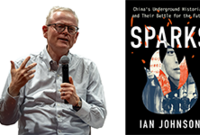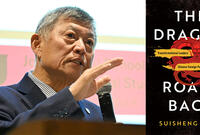Hong Kong was an experiment in governance. Handed back to China in 1997 after 156 years of British rule, it was meant to be a carve-out between hostile systems: a bridge between communism and capitalism, authoritarianism and liberal democracy. “One country, two systems” kept its media free, its courts independent and its protests boisterous, designed also to convince Taiwan of a peaceful solution to Beijing’s desire for reunification.The negotiations producing this formulation did not include Hong Kong’s own people. Their future was determined by political titans in faraway capitals. Public demonstrations have been a feature of Hong Kong's recent history. Often the demonstrators got some or all that they sought. That changed in the past decade. In 2019, an ill-conceived extradition bill drew millions to take to the streets in one of the most enduring protest movements the world has ever seen. Beijing responded with a draconian national security law aimed at not just ending the demonstrations, but to quash the “problem” of Hong Kongers’ identity and desire for freedom.
Reverend Chu, who believed Hong Kong had to carry the spirit of students at Tiananmen Square, saw his silver-haired comrades who birthed the city’s modern pro-democracy movement handcuffed and taken from their homes. Tommy, an art student radicalized into throwing Molotov cocktails, watched “braves” like him brutalized by police before his own arrest prompted him to flee. Finn epitomized the decentralized nature of the movement and its internet-fueled victories, but online anonymity couldn’t stop his life from unravelling. Gwyneth could predict her eventual fate when she chose to give up her career as a journalist to stand for election as an opposition candidate, and did it anyway.
In Among the Braves, Shibani Mahtani and Timothy McLaughlin tell the story of Hong Kong's past, and what the sacrifices of its people mean for global democracy’s shaky foundation.
Hachette Books published Among the Braves. Click here for additional USCI resources on Hong Kong.

Shibani Mahtani is an international investigative correspondent for the Washington Post. She was previously the Post's Hong Kong and Southeast Asia bureau chief and a correspondent for the Wall Street Journal based in Singapore, Yangon, and Chicago. Her Hong Kong coverage was honored with prizes including a Human Rights Press Award for an investigation into police misconduct. She is a graduate of the London School of Economics and Political Science and the Columbia University Graduate School of Journalism.
Timothy McLaughlin is a prize-winning contributing writer for The Atlantic. Previously he worked for Reuters news agency. His work has also appeared in publications including WIRED, The Washington Post, The Los Angeles Times, and Prospect. His Hong Kong coverage has garnered multiple awards, including two Best in Business Awards from the Society for Advancing Business Editing, and is a two-time finalist for The Livingston Award for International Reporting. He is a graduate of the University of Southern California. Mahtani and McLaughlin live in Singapore with their adopted Hong Kong village dog, Bean.



